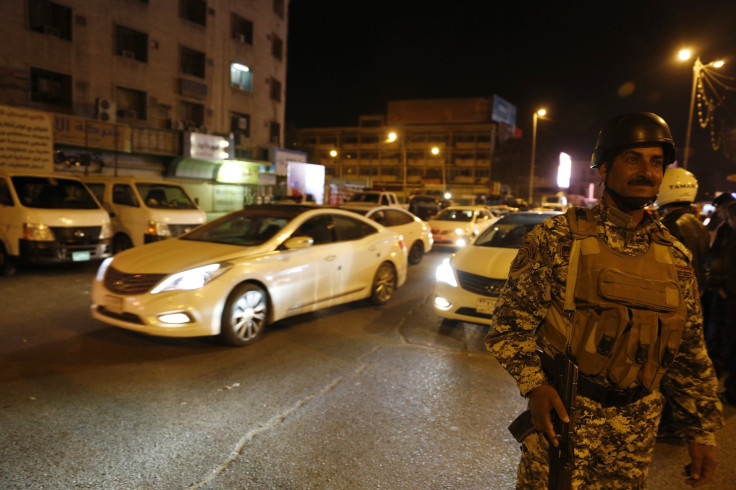Baghdad Bombings Death Toll: Islamic State Responsible For Blasts That Killed Dozens

UPDATE 9:30 p.m. EST: A series of bomb blasts rocked Baghdad Saturday as the government prepared to lift a decadelong night-time curfew. At least 37 people, mostly civilians, were killed as five bombs exploded across the Iraqi capital, Reuters reported. The Islamic State group claimed responsibility for the blasts.
The end of the curfew marks the government's effort to "demilitarize" several neighborhoods and take Iraq off its war footing. The bombings, however, struck a restaurant in a Shiite neighborhood and a bustling central market, highlighting the dangers for civilians in the city.
Original post:
The Islamic State group claimed responsibility for three blasts in Baghdad Saturday that killed at least 40 people. Local officials said the bombings happened just hours before the government was set to lift a citywide nightly curfew in the Iraqi capital.
One of the attacks occurred in the New Baghdad neighborhood, where a suicide bomber killed 22 people by detonating explosives on a street lined with shops and restaurants, the Associated Press reported. The Islamic State bomber was targeting Shiites, the AP said, citing the U.S-based SITE Intelligence Group.
A second attack was centered on Baghdad’s Shorja market, where two bombs were detonated about 80 feet away from each other, leaving at least 11 dead. And a third attack took place at an outdoor market called Abu Cheer, where four were killed. Dozens of people were injured in the multiple blasts.
Meanwhile, about 30 miles north of Baghdad, a deadly explosion killed at least three soldiers in a convoy that was passing through the Sunni town of Tarmiya.
The Baghdad bombings preceded what was supposed to be the last day of a long-standing five-hour curfew, from midnight to 5 a.m., that was established in 2004 because of the rampant violence that came after the U.S.-led occupation of the Middle Eastern country. According to the AP, Prime Minister Haider al-Abadi, who announced the planned demise of the curfew Thursday, has not yet commented on the bombings or their conceivable effect on his decision to lift the curfew.
© Copyright IBTimes 2024. All rights reserved.












